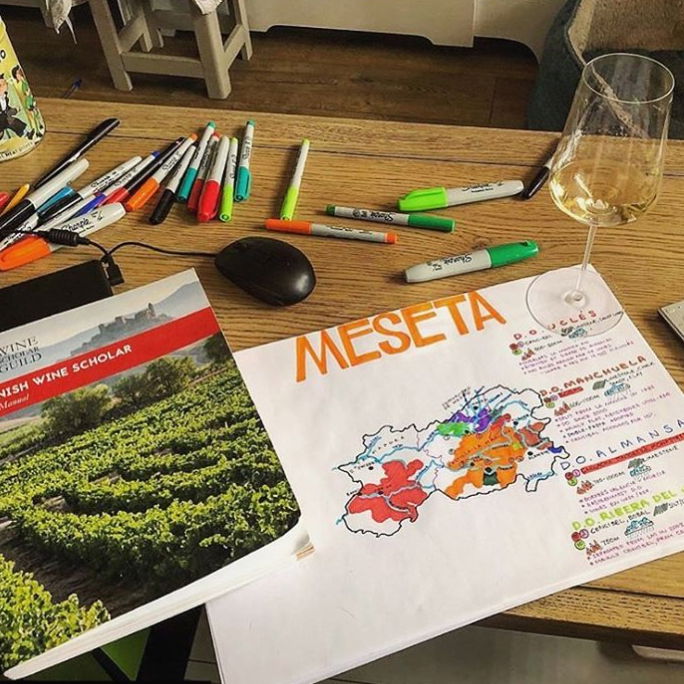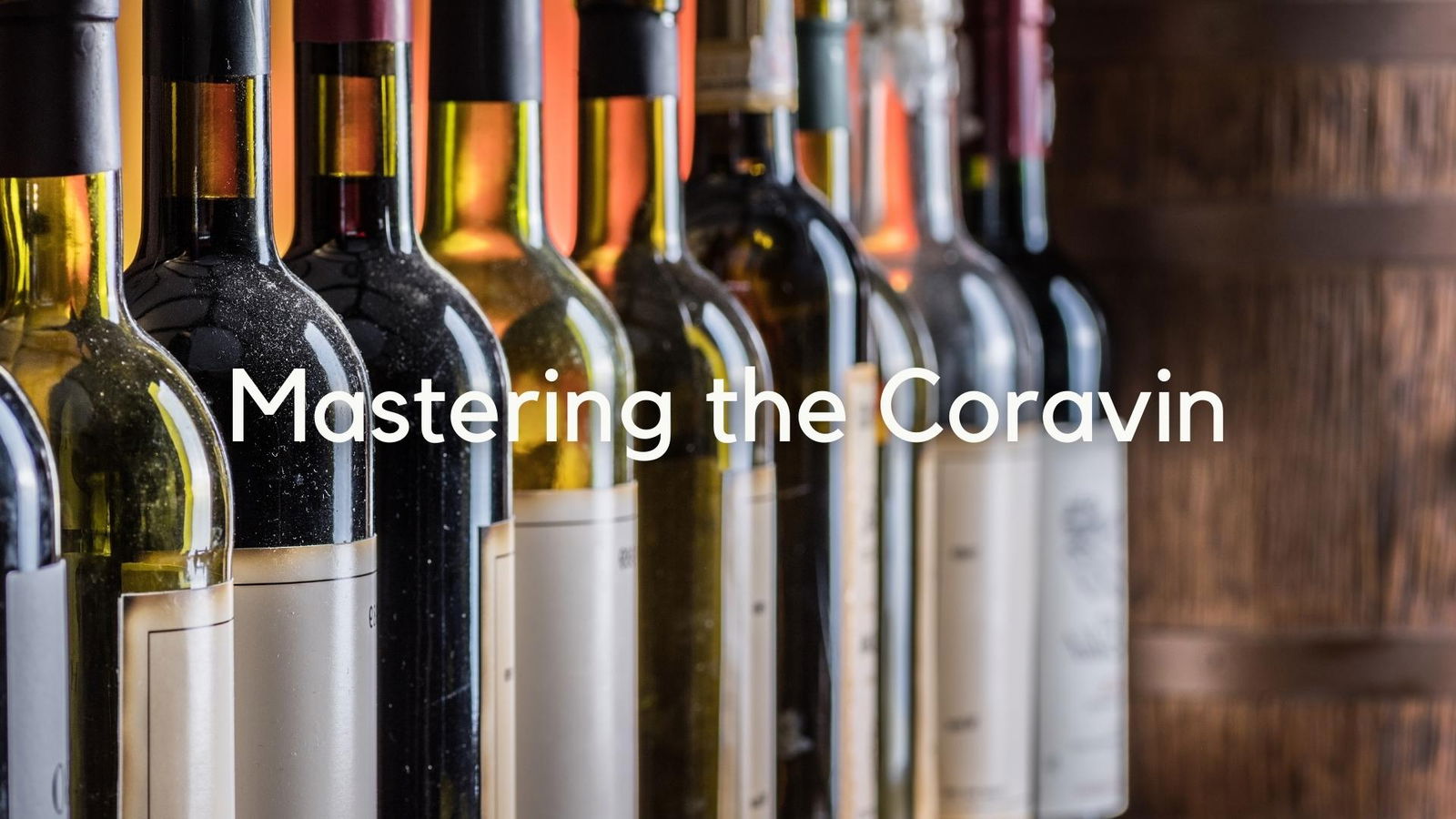BLOG
12 Wine Study Tips for Mastering Distance Learning
Kevin Day Wine Education & Careers

Across the world, the coronavirus pandemic has temporarily closed classrooms and required students to learn their course material entirely from home. At the Wine Scholar Guild, many new enrollments have shifted to the online wine study option for the foreseeable future. In fact, many students now find themselves with more time on their hands as they are required to stay home and adopt “social distancing” to their daily routine.
It is important to note that at-home learning can require very different skills not applied in a classroom setting. Whether you are new to distance learning or eager for ideas on how to improve your studying practice, we’ve compiled 12 helpful study tips to help you make the most of your at-home wine education.
Learning Environment
First and foremost, you have to create the right learning environment at home. If you are used to working from home, this might not be much of an adjustment, but for many, trying to study in the same place where they cook their meals, interact with family and sleep at night can be disruptive.
With that in mind, the following tips can help you make the right adjustments to your setting:
1. Create a dedicated space for your studies
Whether it is a place at your kitchen table, or — better yet — an uncluttered desk where you can spread out your materials, having a consistent place at home to conduct your studies will help establish a rhythm and routine.


2. Chart out a schedule of study and treat it like a job
One of the benefits of our online learning programs is that you have an entire year to complete the exam from the date of your enrollment. But don’t let that be an excuse for procrastination! Set yourself a goal for when you want to complete the exam, and then schedule in blocks of dedicated study each week leading up to your desired testing date.
For example, say you want to devote two hours per day to the Italian Wine Scholar® Unit 2 – Southern Italy. Monday and Tuesday from 8am-10am could be slated for reviewing Campania, while Wednesday and Thursday from 8am-10am could be devoted to Puglia. Then, Friday mornings can be focused on reinforcing the studies of the previous four days and committing concepts to memory. Other weeks could be modeled in a similar fashion.
The main point is to be consistent and to have a road map for the entire course of study. This, paired with a concrete routine rather than “dabbling at studies” will lead to more efficient and effective learning.
Not good at self-discipline? Our online, instructor-led programs set you up with a weekly schedule of activities and live review webinars to help you stay on track and get to the finish line faster.
3. Have someone hide your mobile phone while you study
One of the trickiest parts of at-home learning is eliminating distractions. Nothing compares to the temptations of the “Distractor in Chief,” your mobile phone. Between notifications from social media and push alerts from news media, nothing can derail a good study session quite like it.
So, each day, ask someone to take it away from you. Have them hide it (if making it a game helps) or store it in a drawer for your dedicated study hour. You’ll be amazed how much its disappearance will open your mind to study.
Tactical Advice
Now that you have your routine established for at-home distance learning, here are some tips on independently retaining what you learn which — while applicable in a classroom setting — can be vitally important when you are self-guiding your studies.
4. Avoid “cramming”
Yes, it may have seemed like an essential practice during your university days, but the practice of stuffing your head with as many facts as possible at once has been proven by several studies to do more harm than good.
Instead ...
5. Use active recall
Read sections from the study manual, close the book, and try to say out loud what you just read. Revisit those pages, and see what stuck, and what didn’t.
6. Draw maps of regions
Recreating maps by hand on a large sheet of paper can help reinforce the spatial relationships of a wine region’s landscape. Even if it is not a perfect representation (believe me: freehand drawing Piedmont is tough!) the process of drawing the map is the important part. Wine Scholar Guild online courses also include sets of downloadable blank maps which are ideal for practicing your wine geography.



7. Write down what you are struggling with on flashcards
Devote one card to each concept that is challenging you: on one side, write down the concept (e.g. “Champagne sweetness levels”) and write down only the essential details that are slipping through your fingers on the other side (e.g. “Brut = 0-1.2% sugar, etc.”). When reviewing them, use active recall and state the concept out loud as best you can before flipping the card over.
You can then arrange the cards in organized stacks (e.g. “I think I got this” vs. “still figuring it out”) and — depending on the circumstances in your area right now — you can even take bundles of cards with you on a walk. Have a family member quiz you while you go. The permutations of using flashcards is endless.
And don’t forget: the Wine Scholar Guild’s online program includes its own virtual flash cards which are a great tool for quizzing yourself!



8. Get colorful with your notes
Note taking can feel like drudgery, and so can the idea of reading over your notes. A simple fix can come with a splash of color. Use a multipack of colorful pens and devote specific colors to specific concepts: for example, significant names in red, key dates in purple, grape varieties in green, etc. Customize the colors to your learning style. Not only will this make skimming easier when you review your notes during study sessions, but it will help you make connections that work for you.



9. Create tables
Certain details within wine study benefit greatly from tables, particularly appellation requirements. For instance, you could devote a row for each appellation within a particular region, then columns for grape varieties allowed plus their percentages, oak and aging requirements, minimum alcohol by volume (ABV), and more.



10. Utilize mnemonic devices
Sometimes there is no way around it: you just have to memorize facts. This is where a mnemonic device — a learning technique that helps retrieve information from your memory through specific cues — can come in handy.
Acronyms are among the most popular (CCROM for the main Valpolicella red grapes) as are name mnemonics where the first letters of a silly phase correspond to the first letters of a list you are trying to memorize (such as “Some Japanese Canadians Marry French Canadians Making Really Beautiful Children” for the Beaujolais Cru villages from north to south). Even setting concepts to music can help reinforce your memory and recall. Remember: it’s just you and your exam proctor during the online test — they probably wouldn’t mind a little entertainment if you have to sing!
11. Join a virtual tasting group
It might not be the same thing as sharing a bottle around the table with your closest study pals, but virtual tasting groups can be just as informative. Join the Wine Scholar Guild on Facebook where you can meet other like-minded students and set up a Skype, FaceTime or Zoom tasting of your own!



12. Embrace the Wine Scholar Guild’s online tools
Last but not least is the Wine Scholar Guild website itself. Once enrolled, students have access to a wealth of study aids. Simply click My Account then My Online Courses and you’ll find e-learning modules, learning objectives, flashcards, blank maps, pronunciation guides and self-evaluating quizzes for every chapter in the manual. You can also join forums and ask some of the most burning questions you have and get clarifying answers from Wine Scholar Guild staff.



